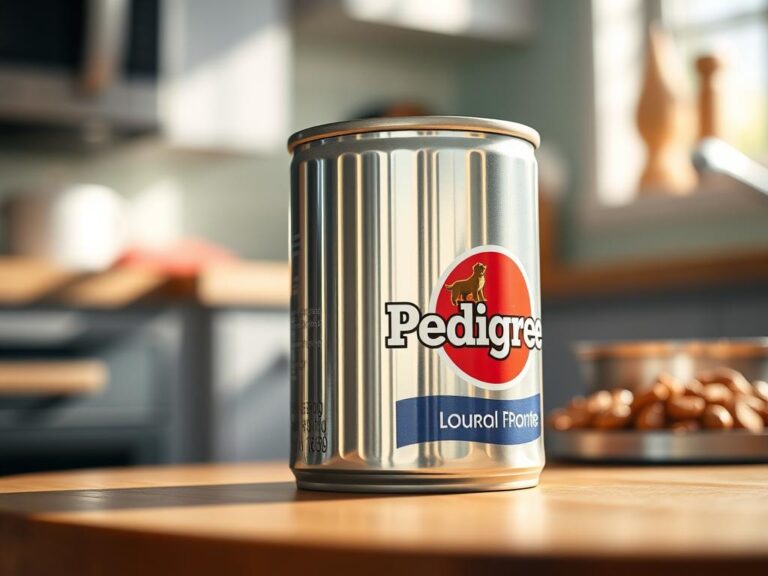How to Handle a Dog Sprayed by a Skunk
When skunk spray hits your furry friend, it can be a distressing experience for both you and your pet. The pungent smell and potential health risks associated with skunk spray effects on dogs make it crucial to know how to handle the situation effectively.
The dangers of skunk spray are not just limited to the unpleasant odor; it can also cause irritation to your dog’s eyes, skin, and respiratory system. Understanding the initial steps to take when your dog is sprayed is vital to minimizing these risks and ensuring your pet’s comfort and safety.
By knowing how to react promptly and effectively, you can reduce the stress and potential health issues associated with skunk spray dangers.
Understanding the Skunk Spray Situation
Encountering a skunk can be a traumatic experience for dogs, often resulting in them being sprayed. The moment this happens, it’s crucial to understand what has occurred to take appropriate action.
What Happens When a Dog Gets Sprayed
When a dog is sprayed by a skunk, the spray comes into contact with the dog’s fur and skin, causing a strong, lingering odor. This smell is not just unpleasant; it’s also a sign that your dog has been in contact with a skunk’s defense mechanism.
Common Reactions in Dogs
Dogs react differently to being sprayed. Some may become anxious or stressed due to the sudden and intense smell, while others may not show immediate signs of distress. Common reactions include:
- Rubbing or scratching at the affected area
- Attempting to hide or avoid social interaction
- Displaying signs of anxiety or stress
Components of Skunk Spray
Skunk spray contains compounds called thiol compounds, which are responsible for its characteristic smell. Understanding the composition of skunk spray is key to effectively removing the smell from your dog. The primary components include:
- Thiol compounds: The main culprit behind the smell
- Other volatile compounds: Contributing to the overall odor
By understanding these elements, dog owners can better prepare themselves for the task of removing skunk smell from dogs and consider various dog skunk spray treatment options.
Can Skunk Spray Kill a Dog?
While skunk spray is infamous for its odor, the real concern for dog owners is whether it poses a lethal threat to their pets. Skunk spray contains compounds that can cause irritation and other health issues in dogs.
Toxicity Levels of Skunk Spray
Skunk spray is not typically toxic enough to kill dogs, but it can cause significant discomfort and health issues. The spray contains thiol compounds, which are responsible for its strong smell and potential to irritate a dog’s eyes, nose, and skin.
Potential Health Risks
Dogs sprayed by skunks can experience a range of health issues, from mild irritation to more severe reactions. These can include eye irritation, respiratory problems, and skin irritation. In rare cases, dogs with pre-existing health conditions may experience exacerbated symptoms.
When to Be Concerned
Dog owners should be concerned if their dog shows signs of severe reaction, such as difficulty breathing, intense eye irritation, or if the dog has a history of allergies or respiratory issues. In such cases, seeking veterinary care is advisable to ensure the dog’s safety and comfort.
Understanding the potential risks associated with skunk spray can help dog owners take appropriate actions to protect their pets. While skunk spray is unlikely to be fatal, it can cause significant distress and health issues in dogs.
Immediate Actions to Take
A skunk spray incident requires swift and careful handling to protect your dog and your home. When your dog is sprayed, the first few minutes are crucial in determining the extent of the damage and the subsequent cleanup process.
Containing Your Dog
The first step is to contain your dog to prevent the skunk spray from spreading to other parts of your home or to other pets. Isolate your dog immediately in a well-ventilated area, preferably outside, to minimize the spread of the odor.
Checking for Eye Contact
Skunk spray can cause severe irritation if it comes into contact with your dog’s eyes. Carefully check your dog’s eyes for redness, swelling, or discharge. If you notice any of these symptoms, flush the eyes with water and consider seeking veterinary care.
Preliminary Cleaning Steps
Before bathing your dog, there are some preliminary steps you can take to begin the cleaning process. Start by removing your dog’s collar and any other items that may have come into contact with the skunk spray.
Protecting Yourself During Cleanup
When handling your dog or items contaminated with skunk spray, wear protective gloves to prevent the oils from coming into contact with your skin. It’s also advisable to wear old clothing that you don’t mind throwing away if necessary.
- Use paper towels or old rags to gently blot your dog’s coat, focusing on the areas most affected by the spray.
- Avoid rubbing or massaging the area, as this can further embed the oils into your dog’s fur and skin.
Effective Odor Removal Methods
Effective skunk odor removal involves understanding the right cleaning solutions and techniques to eliminate the pungent smell from your dog. The key is to act quickly, as the longer you wait, the more difficult it becomes to remove the odor.
The Hydrogen Peroxide Solution Recipe
One of the most effective methods for removing skunk smell is using a hydrogen peroxide solution. Mix 1 quart of 3% hydrogen peroxide, 1/4 cup of baking soda, and 1 teaspoon of liquid soap. This mixture helps break down the oils in skunk spray, making it easier to wash away the smell. It’s crucial to mix this solution fresh each time you use it, as it loses potency over time.
Commercial Skunk Odor Removers
If you prefer a more straightforward solution, commercial skunk odor removers are available. These products are specifically designed to neutralize skunk spray and can be more convenient than homemade recipes. Look for products with good reviews and follow the instructions carefully.
What NOT to Use
Not all cleaning solutions are suitable for removing skunk smell. Avoid using bleach or harsh chemicals, as they can react with the skunk spray and make the smell worse. “Tomato juice, a common myth, is not an effective solution for removing skunk odor.”
Myths About Tomato Juice
The idea that tomato juice can remove skunk smell is a long-standing myth. In reality, tomato juice may temporarily mask the odor but does not eliminate it.
“The only way to truly remove skunk smell is to break down and wash away the oily secretion from the skunk spray,”
says experts. Thus, relying on proven methods like the hydrogen peroxide solution or commercial removers is the best course of action.
By using the right techniques and cleaning solutions, you can effectively remove skunk smell from your dog. Remember, the key to successful odor removal is acting quickly and using the appropriate methods.
Step-by-Step Bathing Process
Effective dog skunk spray treatment involves a systematic bathing approach. To remove the skunk smell from your dog, it’s crucial to follow a detailed bathing process.
Proper Bathing Techniques
Begin by mixing a solution of hydrogen peroxide, baking soda, and dish soap. This homemade remedy is a popular method for removing skunk smell from dogs. Apply the mixture to your dog’s coat, avoiding the eyes and ears.
Let the solution sit for a few minutes before rinsing thoroughly with warm water. Repeat if necessary, ensuring to rinse your dog thoroughly to prevent any skin irritation.
Handling a Resistant Dog
If your dog is resistant to the bathing process, it’s essential to remain calm and patient. Use gentle, soothing voice tones to comfort your dog, and consider having another person assist you in holding your dog during the bath.
Multiple Treatments for Persistent Odor
In some cases, one bath may not be enough to completely eliminate the skunk odor. Repeated treatments may be necessary, especially if the skunk spray has deeply penetrated your dog’s coat.
Dealing with Lingering Smells
For lingering smells, consider using a commercial skunk odor remover or repeating the hydrogen peroxide treatment. Ensure your dog’s bedding and any affected areas are also cleaned to prevent re-contamination.
By following this step-by-step bathing process, you can effectively treat your dog for skunk spray and restore their freshness.
When to Seek Veterinary Care
Skunk spray can cause more than just a bad smell; it can lead to serious health issues in dogs. While most dogs will recover from a skunk spraying without major complications, some may experience adverse reactions that require veterinary care.
Warning Signs of Adverse Reactions
Monitor your dog closely for signs of distress, such as vomiting, diarrhea, or lethargy. If your dog exhibits any of these symptoms, it’s crucial to seek veterinary attention. Respiratory issues can also arise, especially in dogs with pre-existing conditions.
Respiratory Issues to Watch For
Dogs with pre-existing respiratory conditions are more susceptible to complications from skunk spray. Watch for signs of difficulty breathing or wheezing, and seek immediate veterinary care if you notice any of these symptoms.
Eye Problems and Treatment
Skunk spray can cause significant eye irritation. If your dog’s eyes are affected, flush them with water, and consult a veterinarian for further guidance. Prompt treatment can prevent long-term damage.
In summary, while most dogs will recover from skunk spray without serious issues, being aware of the potential dangers and knowing when to seek veterinary care can be lifesaving. Keep an eye out for signs of adverse reactions, and don’t hesitate to consult a professional if you’re unsure about your dog’s health.
Handling Skunk Spray Incidents Effectively
Dealing with a dog that’s been sprayed by a skunk can be a distressing experience for pet owners. Understanding the risks associated with skunk spray, including whether can skunk spray kill a dog, is crucial for providing timely and effective care.
By knowing the immediate actions to take and the most effective dog skunk spray treatment methods, you can mitigate potential health risks and eliminate the odor. It’s essential to remain calm and follow the steps outlined to ensure your dog’s safety and comfort.
While skunk spray is not typically life-threatening, it can cause significant discomfort and health issues if not addressed properly. Prompt bathing and, if necessary, veterinary care can help prevent complications. By being prepared and informed, you can handle skunk spray incidents with confidence.






